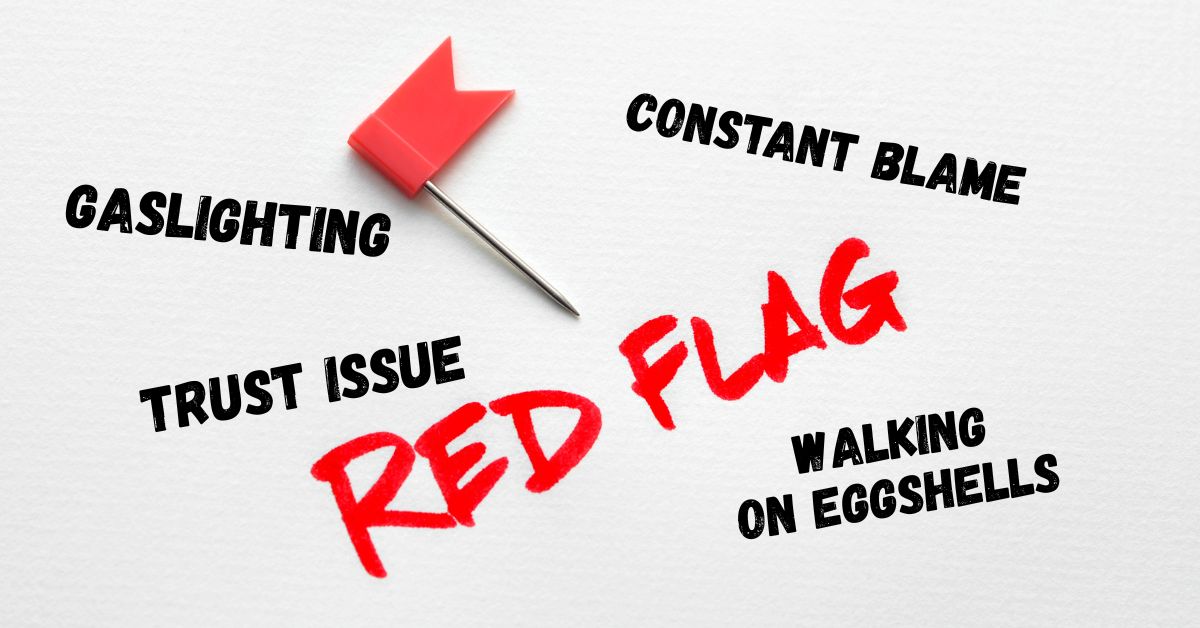
What Is A Toxic Relationship? How To Know If You Are In One
Romantic relationships should be a source of joy, support, and companionship, especially later in life when we value connection more than ever. But what happens when a relationship takes a turn toward negativity, leaving you feeling drained or worthless? This is often the result of a toxic relationship. Recognizing the signs of a toxic relationship is the first step toward protecting your emotional health and finding the happiness you deserve.
A toxic relationship doesn’t always start with obvious red flags. Sometimes, the signs creep in gradually, leaving you questioning whether what you’re experiencing is normal. This article will help you identify unhealthy patterns and offer steps to improve your well-being.
What Defines a Toxic Relationship?
A toxic relationship is one where negativity outweighs support and harm outweighs love. Instead of building you up, it brings you down. Relationships like these can involve emotional, verbal, or even physical abuse, but they also include subtle forms of harm, from manipulation to neglect. A partnership becomes toxic when it consistently sows unhappiness and stress, making it hard to feel secure and valued.
While one-off disagreements or bad days are normal in any relationship, a toxic partnership is marked by repetitive, harmful behaviors that become the norm. Recognizing these patterns takes self-awareness, as well as willingness to question whether your relationship is truly fulfilling.
Common Signs of a Toxic Relationship
Here are some warning signs to watch for. These indicators can help you assess if you’re in a harmful dynamic:
- Frequent Criticism or Belittling: Does your partner frequently put you down, make sarcastic comments, or dismiss your achievements? Constant criticism can erode your self-esteem over time.
- Controlling Behavior: A toxic partner may monitor your actions, dictate who you can see, or try to control major decisions in your life.
- Gaslighting: If your partner twists the truth, denies things that happened, or makes you question your reality, this is a form of emotional manipulation called gaslighting.
- One-Sided Effort: Are you the only one trying to fix problems or make your relationship work? A healthy partnership takes equal effort.
- Lack of Respect for Boundaries: If your partner ignores your boundaries, this shows a lack of respect and consideration for your needs.
- Jealousy and Possessiveness: Trust is crucial in any relationship. A toxic partner may accuse you of wrongdoing without reason or act overly possessive.
- Persistent Negativity: Do you feel emotionally exhausted after interactions with your partner? Relationships should energize, not drain, you.
- Isolation from Others: If your partner discourages you from maintaining friendships or family ties, it’s a problem. Isolation is often a tactic used to exert control.
- Poor Communication: A toxic relationship often involves shouting matches, the silent treatment, or discussions that leave issues unresolved.
- Walking on Eggshells: If you’re constantly anxious about how your partner will react or afraid to speak your mind, it’s a sign the relationship isn’t emotionally safe.
The Emotional Impact of Toxic Relationships
Toxic relationships don’t just hurt your happiness; they can take a toll on your mental and emotional health. Over time, these dynamics can trigger feelings of anxiety, depression, and low self-worth. You may question your value as a partner or even as a person.
Even physical health isn’t spared. Chronic stress from an unhealthy relationship can lead to headaches, high blood pressure, and sleep issues. The emotional turmoil can also overshadow the fulfillment you should be experiencing during this stage of your life.
Remember, you deserve a relationship that uplifts you, not one that undermines your confidence or well-being. If you’re feeling burned out, panicked, or afraid in your partnership, trust those instincts and explore whether change is needed.

Reasons You Might Stay in a Toxic Relationship
Your instincts might be telling you something is wrong, but leaving a toxic relationship can still feel overwhelming. There are several reasons people stay, even when unhappiness grows:
- Fear of Loneliness: During your 50s, 60s, or 70s, the fear of being alone might keep you in an unhealthy relationship. You may feel that breaking up means you’ll lose your chance for love.
- Hope for Change: Many people believe their partner will change if they give them more time or effort. Unfortunately, change rarely happens without willingness from both sides.
- Habit and Comfort: Being in a relationship, even a toxic one, can feel less intimidating than starting over, especially after years of being together.
- Guilt or Obligation: You may feel responsible for your partner’s happiness or worry about hurting them by leaving.
- Financial Dependence: If your finances are entangled or you rely on your partner for support, the idea of separating becomes more complicated.
Acknowledging these challenges is important, as it’s the first step toward addressing what’s holding you back from making healthier choices.
How to Address a Toxic Relationship
If you recognize the signs of a toxic relationship, you have two main paths forward. You can work to improve the dynamic or choose to leave. Here’s how to start:
- Communicate Clearly
Have an honest, direct conversation with your partner about how the relationship is affecting you. Speak calmly and stick to “I” statements, like “I feel hurt when…” or “I need more support in…” This reduces defensiveness and opens the door to dialogue.
- Set Boundaries
Identify what you need for the relationship to improve and set firm boundaries around those needs. For example, say, “If you raise your voice, I will leave the room until we can talk calmly.” Be consistent in upholding boundaries.
- Seek Professional Help
A therapist or counselor can provide a safe space to address issues and reveal unhealthy dynamics. Couples therapy can be especially helpful if both partners are committed to change. However, if the toxicity stems from abuse, it’s safer to seek individual counseling first.
- Build a Support System
Talk to trusted friends or family members about what you’re experiencing. Isolation often worsens the effects of a toxic relationship, so having people who support you will make a difference.
When to Walk Away
Not all toxic relationships can (or should) be repaired. Here are some signs it might be time to leave:
- Abuse: Physical or emotional abuse is never acceptable, regardless of circumstances.
- Repeated Patterns: If harmful behaviors persist despite attempts to address them, it indicates your partner is unwilling to change.
- Loss of Identity: When a relationship robs you of who you are, leaving may restore your sense of self.
- No Resolution: When every discussion fails or becomes a fight, productive communication may no longer be possible.
Walking away is never easy, but staying in an environment that harms you is not the answer either. Choosing yourself is an act of courage and self-respect.
Choosing Yourself and Finding Better Relationships
Ending a toxic relationship is not the end of your story. It’s a step toward a better, healthier chapter of your life. It frees you to rediscover your passions, reconnect with loved ones, and eventually find a relationship where mutual compatibility and respect shine.
Later-life relationships are about more than just romantic love; they’re about companionship, comfort, and shared joy. If one partnership is no longer serving you, there’s always an opportunity to create a life that does.
Recognizing the signs of a toxic relationship takes bravery, but that awareness empowers you to make choices that protect your emotional health. By putting yourself first, you’ll not only reclaim your sense of self-worth but also open the door to genuine happiness. Always remember, love should uplift you, not weigh you down.











